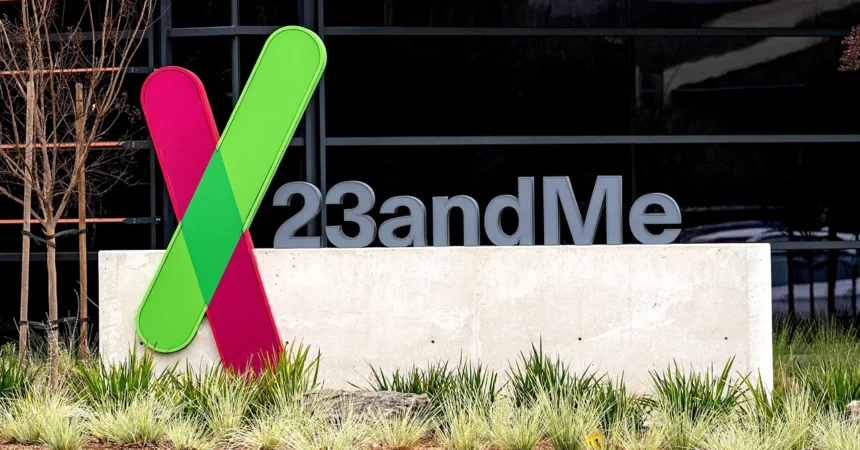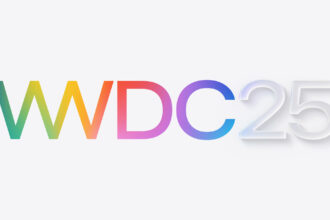On Sunday night, March 23, 2025, 23andMe, the genetic testing pioneer once valued at $6 billion, filed for Chapter 11 bankruptcy protection in Missouri federal court, marking a stunning fall from its 2021 peak. Hours later, co-founder and CEO Anne Wojcicki resigned, effective immediately, handing the reins to CFO Joseph Selsavage as interim CEO. Wojcicki, staying on the board, vowed to bid for the company independently during its 45-day sale process. With assets and liabilities each estimated at $100 million to $500 million, a tarnished reputation from a 2023 data breach, and a market cap now at $25 million, 23andMe’s next chapter hinges on finding a savior. Here’s what led to this moment—and what’s at stake.
From Boom to Bust: A $6B Dream Unravels
Founded in 2006 by Wojcicki and others, 23andMe rode the wave of at-home DNA kits—think ancestry insights and health reports—into mainstream fame, earning five CNBC Disruptor 50 nods. Its 2021 SPAC merger with Richard Branson’s Virgin Group pegged its value at $3.5 billion, briefly pushing it to $6 billion post-IPO. But the shine faded fast. Shares, once over $300, crashed to 88 cents by Monday, March 24, 2025 (per Reuters), as recurring revenue eluded it. Efforts to pivot into therapeutics and subscriptions flopped, and a 40% staff cut (200 jobs) in November 2024 couldn’t stem the bleeding.
Wojcicki’s repeated bids to take 23andMe private—starting April 2024—hit a wall. Her latest offer, 41 cents per share ($11 million valuation), was rejected unanimously by a special committee this month, prompting her exit. “I take accountability for the challenges we have today,” she posted on X at 1:02 a.m. PDT Monday, her belief in 23andMe “unwavering” despite the turmoil.
Privacy Breach Shadows the Sale
Beyond finances, a 2023 data breach looms large. Hackers accessed 6.9 million customers’ data—genetic profiles, ancestry, even unverified snippets on figures like Mark Zuckerberg (Forbes)—via recycled passwords. A $30 million settlement and three years of security monitoring followed in September 2024, but trust cratered. California AG Rob Bonta’s March 21 consumer alert urged users to delete their data, amplifying privacy fears. 23andMe insists its practices won’t change during the sale, but X posts like @tkpoliticalbrew’s “What happens to my DNA now?” reflect unease.
Chapter 11: A Last-Ditch Lifeline
The Missouri filing aims to “maximize the value of the business” via a court-supervised sale, with a 45-day bidding window if approved. Wojcicki’s in the mix, but other suitors—like health-tech firms eyeing its 10 million-user database—could emerge. Assets include that genetic trove and a shuttered therapeutics arm; liabilities tie to legal settlements and $2.3 billion in debts (November SEC filing). Selsavage, with restructuring chief Matt Kvarda of Alvarez & Marsal, must keep operations humming as bids roll in.
What’s Next for 23andMe?
At $25 million, 23andMe’s a shadow of its former self—down 99% from its peak. Wojcicki’s bid could preserve her vision, but a third-party buyer (say, a pharma giant or Alphabet, tied to her ex-husband Sergey Brin) might pivot it entirely. Privacy remains the wildcard: Bonta’s alert and X sentiment (@Calcalistech: “A $3.5B IPO to bankruptcy”) signal skepticism. The sale’s outcome—due by early May if timelines hold—will test whether 23andMe’s mission to “help people access, understand, and benefit from the human genome” (Chair Mark Jensen) survives.
For now, it’s business as usual, but the clock’s ticking. Will Wojcicki reclaim her brainchild, or will 23andMe’s DNA find a new home? Stay tuned for Missouri’s ruling—and the bids that follow.














